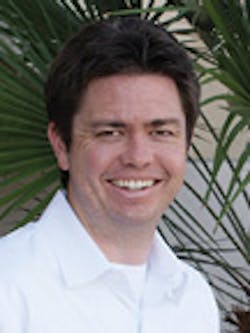Dentistry’s downfall: Lack of personal accountability
Jonathan Ford, DDS
The owner of a typical dental practice is in a unique position. In the normal business world, an employee reports to his or her superior. That superior reports to someone else, and the chain of command continues until you reach the CEO. The CEO then reports to either a board of directors, stockholders, or both. Therefore, everyone in the entire business unit is held accountable. There is a constant pressure to grow the business’s profits by expanding services or cutting expenses.
This theory of accountability also applies to the nonprofit world, but in that realm, profits are replaced by impact on society at large. A board of directors oversees the organization and its executive director, whose goal is to fulfill the board’s vision. So, whether it’s a for-profit or nonprofit entity, accountability is built into the system.
In the typical single-provider office, the head dentist is the employee, CEO, board of directors, and sole stockholder all rolled into one. Because all of the power is held by one person, complacency is an easy trap to fall into, and practices fail to reach their full potential due to lack of accountability.
Now, I get that some doctors are happy with the status quo—that’s their right and choice. However, this makes me think of a quote often attributed to football coach Bo Schembechler: “Every day you either get better or you get worse. You never stay the same.” If you are treading water in the business world, you are getting passed by. Dentistry has been labeled as a cottage industry and is known for being slow to react. That derives from the sole practitioner being stuck in his or her ways and eventually becoming apathetic.
Corporate dental offices have many competitive advantages, but I think accountability and corporate structure are advantages many often overlook and undervalue. Everyone reports to someone. DSOs also encourage ongoing learning because the continuing education that they offer is abundant and endless. DSOs are designed to grow and gain market share; that’s exactly what they have been doing over the last five to 10 years. Although many sole providers have complained about DSO practices, they have done little to change their own business practices. Actions speak louder than words.
That described me two years ago. I was stuck in a rut, and my practice was too. It started with me, since I was the captain of the ship. I needed to make changes first and set the example of how I wanted the practice to run. I started with myself first. This included setting up personal and professional coaching. I took care of myself physically by hiring a trainer and waking at five each morning to work out. I hired a dental consultant who worked on my skills as a leader first and foremost. I told each coach to hold me accountable.
I then focused on the staff. Those who were willing to share my vision for the practice stayed; those who resisted either left or were forced to leave.
After the staff, I focused on revamping the technology in the office. This included adding digital technologies and taking the requisite training. Along the way, I found an amazing group of mentors and a support system that kept challenging me to do more.
While this journey wasn’t easy, my practice has grown significantly in the past couple of years. There were costs financially, mentally, and personally. However, I see each of those as necessary steps along the way toward accomplishing the vision I had set for myself and my practice. The key was keeping myself accountable and not being satisfied with the status quo. The challenge now is maintaining the accountability and pushing forward.
The profession of dentistry is at a unique crossroads and is being pressured from multiple sides. If sole practitioners don’t begin to hold themselves individually accountable and start adapting to the changes, the external pressures will make those changes on their own. As Chris Salierno, DDS, recently stated in his article about the economic outlook of dentistry, “We don’t know how soon this change will take place. We don’t know exactly how traditional business models will fare after a surgical-preventive payment shift takes place. But here’s what we do know: dentists cannot afford to sit this one out with their heads in the sand.”1
I encourage all dentists to find ways to hold themselves accountable and grow their practices. Take continuing education, implement new technologies, hire a dental consultant, find a mentor, or read a book! It doesn’t have to be as drastic as shaking up your staff—but that might help! Try something to break free from the status quo. It isn’t easy, but it can be done.
Reference
1. Salierno C. The ADA’s chief economist just dropped a bombshell. DentistryIQ website. http://www.dentistryiq.com/articles/2018/02/the-ada-s-chief-economist-just-dropped-a-bombshell.html. Published February 23, 2018.
Jonathan Ford, DDS, is a general dentist at Ford Dental Group in Huntington Beach, California. He graduated from the University of Pennsylvania School of Dental Medicine in 2007. He served on the board of directors for The Dentist Service Company in 2015. He currently serves on a council for the California Dental Association and is a board member of the Orange County Dental Society. You can reach him by email at [email protected]. Visit his website at forddentalgroup.com.

